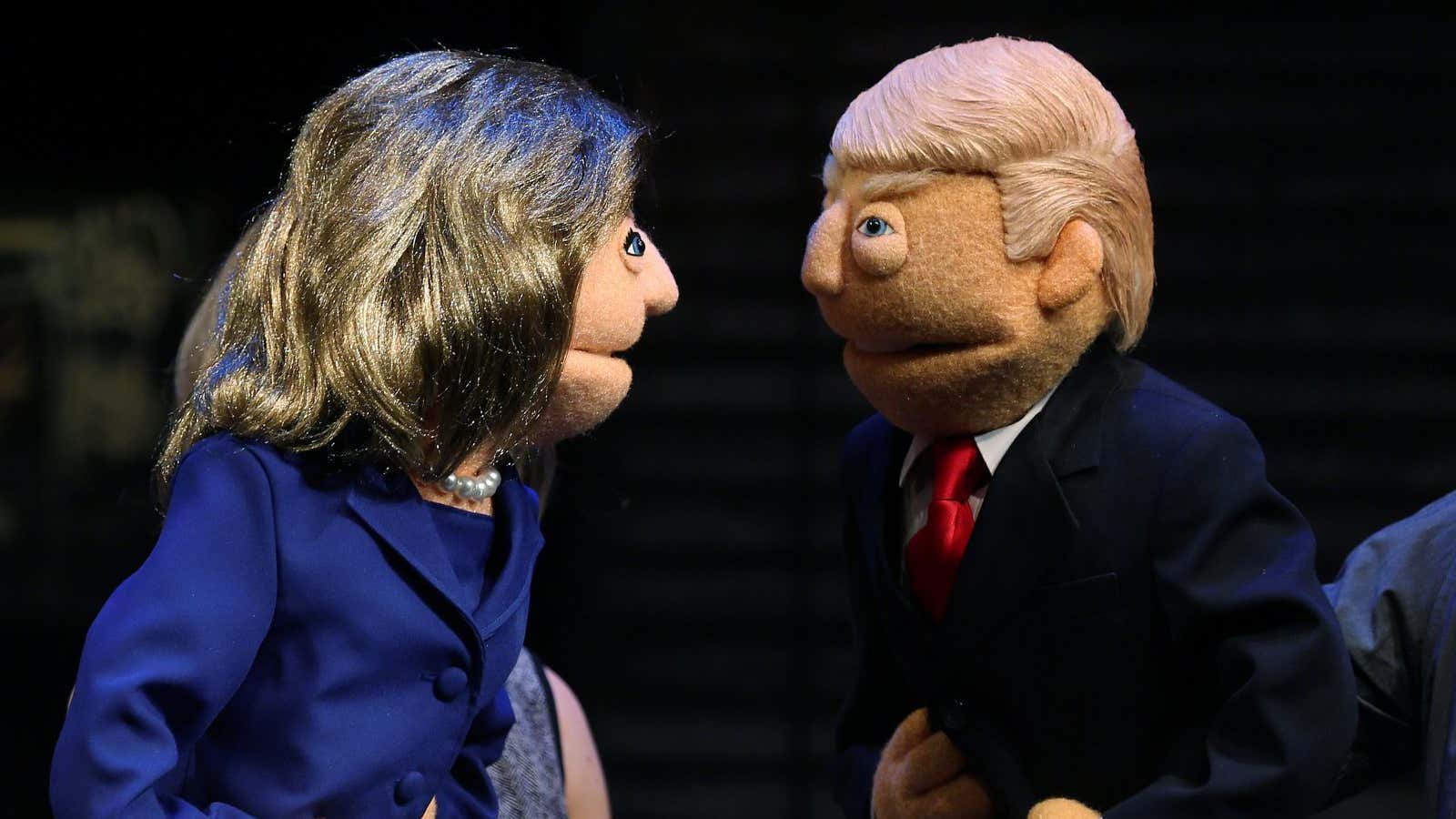Long considered one of the least sexy jobs in journalism, fact-checking is finally having its day in the sun.
It was perhaps inevitable, given both the sheer number of falsehoods peddled during the US presidential race and the high-profile examples of journalists giving candidates a pass on their fibs. At a recent town hall, for example, NBC’s Matt Lauer blithely failed to call out Donald Trump on his lie about having opposed the Iraq war.
Lester Holt, the moderator of tonight’s debate between Trump and Hillary Clinton, is thought to be made of sterner stuff. But Janet Brown, executive director of the Commission on Presidential Debates, caused a storm this weekend when telling CNN, “I don’t think it’s a good idea to get the moderator into essentially serving as the Encyclopedia Britannica.”
Revealingly, the Clinton campaign has been pushing for moderators to rebut lies wherever possible, while Trump’s campaign manager, Kellyanne Conway, told ABC, ”I really don’t appreciate the campaigns thinking it is the job of the media to go and be these virtual fact-checkers.” If not the media, then who?
The debate over fact-checking says a lot about how political culture has shifted to a postmodern environment where boundaries between truth and fiction are increasingly blurred. You could argue we’re in a “post-fact” world, and that this is what allows Vladimir Putin to claim Russian troops are not in Crimea, Brexit campaigners to lie about redirecting £350 million a week from Brussels to Britain’s National Health Service, and Trump to be mostly truthful only 16% of the time he opens his mouth, according to Politifact’s 2016 election fact-check compilation. Clinton is a saint by comparison—her fact-checked statements are ”mostly true” 52% of the time.
The value of truth may be overstated to begin with, of course. Back in 1873, Friedrich Nietzsche was writing that “truths are illusions about which one has forgotten that is what they are; metaphors which are worn out and without sensuous power.” But if you do want to try and keep up on what does and doesn’t correspond with reality, here’s a list of fact-checkers to keep your eye on when the two candidates face off tonight, compiled by the American Press Institute:
- Politifact will be doing its thing on its website and on social media.
- Factcheck.org will live tweet @factcheckdotorg and put together a truth transcript by the morning.
- The Washington Post’s Glenn Kessler and Michelle Ye Hee Le will be live-tweeting and live fact-checking.
- WIRED will run a fact-checking live blog.
- Bloomberg TV’s debate coverage will have live on-screen fact-checking.
- ClaimBuster has automated software that deems whether sentences are linguistically “fact-check-worthy.”
- NPR has a widget that will annotate a live transcript of the debate with fact checks by its reporters.
